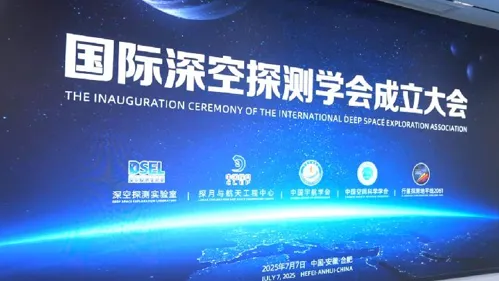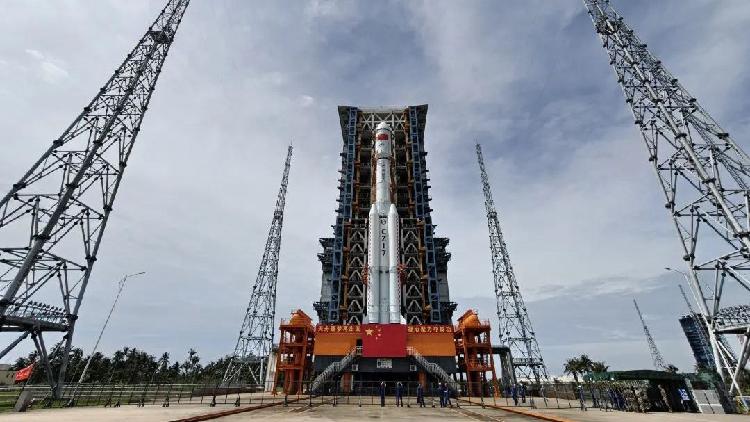China Launches First Global Association for Deep-Space Exploration

China has launched the International Deep Space Exploration Association (IDSEA) with the aim of empowering developing countries to access cutting-edge deep-space technologies.
Situated in Hefei, in east China's Anhui Province, the IDSEA marks a significant step as the nation’s first international academic organization focused on aerospace. This venture is set against the backdrop of increasing global interest in China's lunar and Mars exploration initiatives.
"Our ambition is to attract 500 international research members and 100,000 individual scientist members within the next decade," stated Wu Weiren, the chief designer of China’s lunar exploration program and an academician at the Chinese Academy of Engineering.
The IDSEA will prioritize deep-space studies, including investigations into the moon, other planets, and asteroids, while promoting international collaboration in this field, according to officials from the Hefei-based Deep Space Exploration Laboratory, one of the five initiators of the association.
Wang Zhongmin, director of the lab's international cooperation center, emphasized that the IDSEA seeks to create an inclusive academic platform specifically designed for the benefit of developing nations.
"We aim to engage as many developing countries as possible, introducing small but impactful programs such as CubeSat design and scientist training, thereby enabling access to advanced technologies that previously seemed out of reach," he explained.
Historically, deep-space exploration has been confined to a select group of nations due to high capital investment, technological expertise, and talent availability. Wang stressed the need to break this monopolistic trend to ensure that deep-space technologies are shared for the benefit of humanity.
During the launch, attendees noted that the association is expected to enhance international space cooperation by pooling together various space agencies. There are unique specialties across different countries, making global partnerships essential.
"This association will facilitate connections among international partners and scientists on a single platform, ensuring awareness of ongoing and future missions," remarked Ahmet Hamdi Takan, an expert from Turkiye’s Deep Space Science and Technology.
Despite its relatively recent entry into space exploration, China has quickly established itself as a key player, demonstrating a commitment to cooperation with other nations.
In recent developments, China permitted seven institutions from six countries – including France, Germany, Japan, Pakistan, the United Kingdom, and the United States – to borrow lunar samples from its Chang'e-5 mission for scientific study.
China has also extended invitations for global partners to partake in its Mars missions, notably planning to launch the Tianwen-3 Mars sample-return mission around 2028. This mission aims to search for evidence of life on Mars and represents a significant technical challenge, akin to the historic Apollo missions.
Read These Next

AI Progress Duality: GLM-4.5 Implications
This commentary discusses the implications of the GLM-4.5 model release, examining its potential to revolutionize AI applications and the broader impact on the job market.

AI for Public Good: UK and OpenAI's Age Verification Partnership
This article explains the significance of the OpenAI and UK government's partnership to use AI technology in enhancing public service delivery, particularly in ensuring online safety for children. It outlines the mechanisms of AI applications in age verification and the broader implications for digital governance.

Rocket with Tianzhou-9 Cargo Spaceship Reaches Launch Pad
Long March-7 rocket with Tianzhou-9 moved to Hainan launch pad to deliver materials to the Chinese space station.
